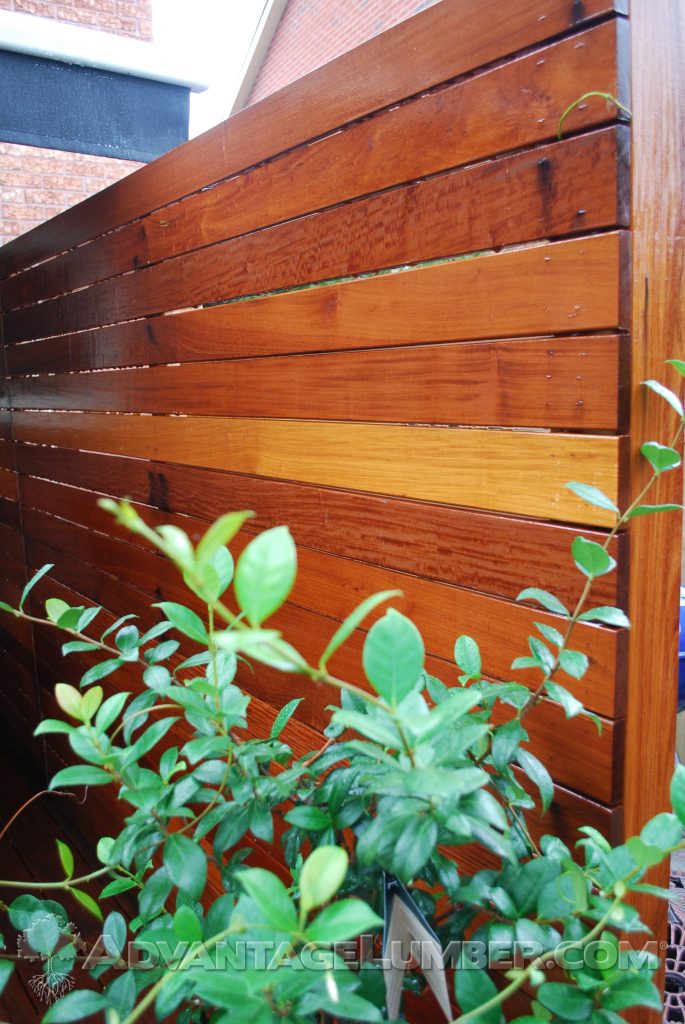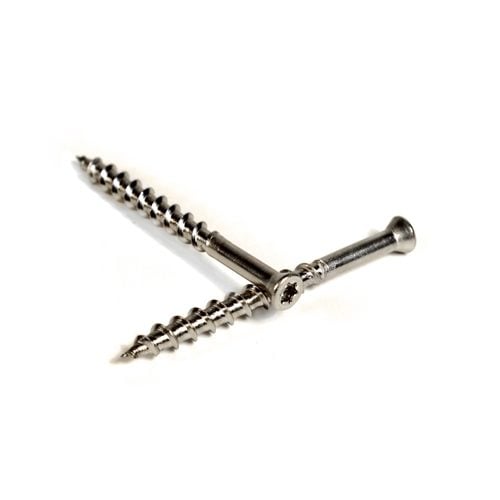Decking projects are an investment in both aesthetics and longevity, especially when opting for premium materials like Ipe hardwood or synthetic options such as Trex and TimberTech. While these materials boast impressive durability and beauty, their full potential can only be realized with the right installation components.
Among these unsung heroes, stainless steel deck screws stand out as indispensable. Let’s look at why their use is paramount, particularly with Ipe decking and synthetic alternatives.
Ipe Wood Decking: Why Stainless Steel is Non-Negotiable
Ipe decking, renowned for its strength and natural beauty, presents unique challenges during installation. Inferior fasteners can mar the wood’s surface, compromise its structural integrity, and even jeopardize safety. Here’s what can go wrong without stainless steel deck screws:
- Corrosion Concerns: Ipe’s high density and natural oils make it exceptionally resistant to decay and rot. However, traditional steel screws rust and leave black oxidation stains on Ipe wood when exposed to Ipe’s oils and moisture, leading to unsightly stains and eventually weakened connections.
- Salt Water Applications: Ipe wood is known to withstand saltwater applications exceptionally well however in these applications it’s exceptionally important to choose the appropriate screws. 316 stainless steel deck screws offer added protection from corrosion caused by saltwater.
- Aesthetic Degradation: Using the wrong fasteners can detract from Ipe’s beauty, leaving unsightly blemishes or discoloration on its surface. Deck screws made from regular steel will leave black oxidation stains on Ipe wood even the screws that have a protective coating on them. Stainless steel screws will not react with the natural oils in the Ipe wood and will not stain the wood. Make sure you or your installer don’t cut costs on the deck screws when installing Ipe wood.
Below is a picture of an Ipe wood fence that was installed with regular brad nails. You should not use a brad nails in general as they can split the wood. Ipe is so dense we recommend only using screws and pre-drilling all your screw homes for best results.
You can see the black oxidation stains around the fasteners as a result of not using stainless steel. This is a prefect example of what not to do.

Stainless Steel Composite Deck Screws
When installing composite decking products such as Trex and TimberTech which offer 25 – 50 year warranties it’s important to use screws that can last equally as long. This is why it’s imperative to use the recommended stainless steel composite deck screws. Here’s why:
- Compatibility and Stability: Synthetic decking materials often require specific fasteners to ensure a secure grip without compromising their integrity. Stainless steel screws are engineered to provide this stability, preventing boards from shifting or warping over time.
- Warranty Compliance: Both Trex and TimberTech explicitly recommend the use of approved fasteners to maintain their warranty coverage. Failure to adhere to these guidelines can void the warranty and leave homeowners exposed to unnecessary risks and expenses. Not all approved fasteners are stainless steel so consider choosing one that is made of stainless steel especially if you’re choosing a decking product warrantied for 50 years.
- Long-Term Resilience: Unlike traditional steel screws, stainless steel variants offer superior corrosion resistance, ensuring that synthetic decking remains pristine and structurally sound for years to come. This resilience translates to reduced maintenance and longer intervals between replacements, maximizing the value of the investment.
Conclusion: Choosing Wisely for Lasting Beauty and Performance
When building a decking, every component plays a crucial role in achieving the desired outcome: a beautiful, durable outdoor space that stands the test of time. When it comes to Ipe decking and synthetic alternatives like Trex and TimberTech, the choice of fasteners is non-negotiable. Stainless steel deck screws offer unparalleled corrosion resistance, compatibility, and stability, safeguarding the integrity and aesthetics of the deck for years to come. So, whether you’re embarking on a hardwood or synthetic decking project, remember: the devil is in the details, and the details demand stainless steel.
